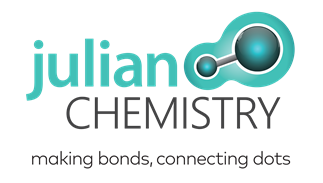6 Key Strategies for Successful Education
More Expat Students Choose Private Tuition
December 18, 2017The Dilemma: JC or Poly?
January 9, 2018
Teaching is an incredibly important job. In modern Singapore schools, it is often made into a more complex role than it needs to be. In the interest of true learning and student engagement, experts writing for The Guardian suggest that teachers pare down the number of activities in the classroom and instead focus on the essentials of education.
1. Comprehension
When new topics are presented to the students, do they understand? Can they retell the lesson or concept in their own words? Teachers need to present critical thinking questions to the students, prompting them to think through the topic and draw conclusions.
2. Personalised Coaching
If teachers are consistently questioning and checking for comprehension, they will be better able to give feedback to students who need to improve. They can develop more challenging exercises for students who are ahead in the subject, and provide extra help to those who may be lagging behind.
3. Review
Students don’t grasp new information the first time they hear it, or even the second time. They need the information to be reviewed again and again, presented in different ways. Most students will know the information after the third time it is taught, but they may need to have their memories refreshed periodically in order to retain the knowledge permanently.
4. Positive Support
Rather than being a negative environment that is solely driven by grades and exam achievement, a Singapore classroom needs to be a place of support for the whole child. The teacher/student relationship can be a powerful force for good in a student’s life. In fact, successful men and women often credit a particular favourite teacher as being a role model and inspiration for their achievements. Clear communication and care for each individual student is vital to a positive classroom environment.
5. Guidance Toward Independence
Students don’t come into the classroom with the knowledge of how to study and memorise effectively. They need to be taught those study skills and guided toward retention with tools for memorisation. After some targeted coaching and careful guidance from the teacher, the students will eventually learn to work and study independently.
6. Cognitive Load Adjustment
The cognitive load is the mass of information that a Singapore student is expected to know. Teachers are responsible for ensuring that they are only presenting the essentials, with enough details to make the information relevant and interesting. It can be tough to reduce the content to the optimal amount, but it’s essential to avoid overwhelming, boring, or discouraging students.
Chemistry Tuition in Singapore
In some ways, Singapore’s education is superior to that of many countries in the world. However, it still lacks some of the key engagement strategies and learning tactics that could help students truly excel. That’s why many Singapore parents employ tutors for their children, to give them their best chance of success.
If you’re shopping around for chemistry tuition in Singapore, look for a private tutor like Julian Tan, someone who can make learning fun. When your child is making discoveries and realising new connections between the textbook and the real world, genuine learning is taking place— and it’s the kind of learning that will last for a lifetime, not just until the A level or O level exams.
Source: Guardian, 27 October 2017
